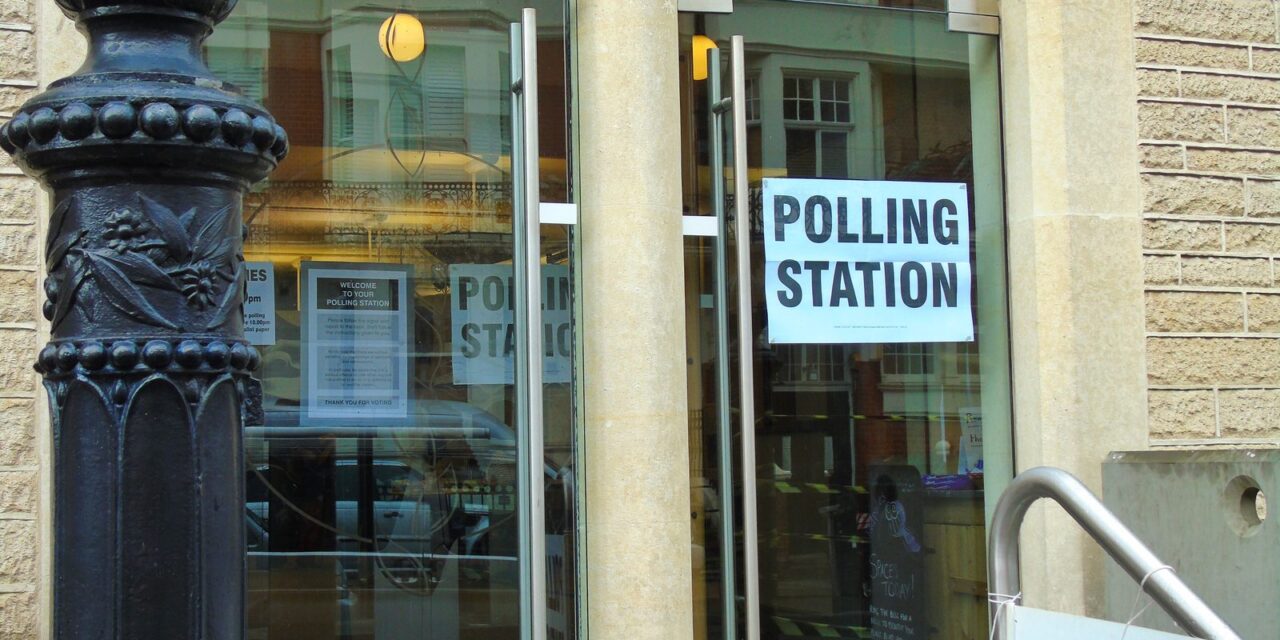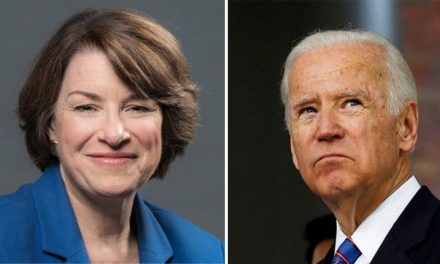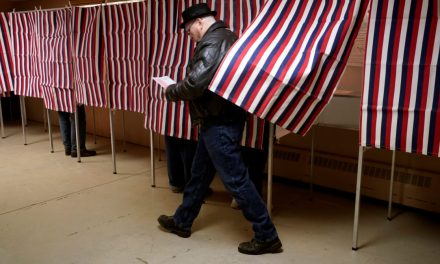When sitting presidents get reelected, they frequently get elected resoundingly. In the post-war era, six sitting presidents have been reelected. Four of them won in landslides. In 1956, Eisenhower improved on his 1952 totals (55%) by racking up 57% of the vote. In 1964, Lyndon Johnson earned 61% of the vote. In 1972, Nixon jumped from 43% (in 1968) to sixty-one percent. In 1980, Reagan won only 51% of the vote in a three-way race. In 1984, he was reelected with 59% of the vote in a two-way race. Bill Clinton fought two three-way races, never getting as much as simple majority of the vote. Still, he upped his percentage from 43% in 1992 to 49% in 1996. Only George W. Bush defied this trend. He won the presidency in 2000 despite losing the popular vote. His election was essentially a fluke produced by a flawed ballot design in one county of Florida and enabled by an aggressive governor (his brother) and secretary of state, and a partisan ruling of the Supreme Court of the United States. His reelection was anything but resounding. He earned slightly less than 51% of the vote, and he benefited from a secretary of state in Ohio who used every trick in the book to depress Democratic turnout.
But I don’t want to talk about the controversial elections of the Bush era. I only mention them to point out they are historical anomalies. It is much more normal for a sitting president to win big than to win narrowly.
The sample of post-war incumbents who have lost is half the size of those who won, but it still shows a 2:1 ratio for blowouts. Jimmy Carter (41%) and George H.W. Bush (37%) were blasted out of office. Gerald Ford (48%) put up a more respectable showing.
We’ve grown accustomed to an even red/blue divide, but it’s probably a transitory state of affairs. In 2012, we may be facing a choice between someone like Newt Gingrich or Rick Perry and President Obama. In a circumstance like that, we ought to expect a result similar to 1964, 1972, and 1984. It really doesn’t matter what state you live in, it’s easy to see that Gingrich and Perry are not suitable presidents.
Mitt Romney is a very bad politician. But he wouldn’t be seen as flatly incapable of doing the job. That’s why he would probably produce an election more like 1976 or 1996. Either he would very narrowly defeat the president, or he’d be beaten comfortably but, like Bob Dole, not resoundingly.
The biggest difference between a fight against Romney and a fight against Gingrich or Perry is in how it would affect the downticket races. Republicans are already worrying about it, as The Hill reports:
Republicans on Capitol Hill prefer Romney over Gingrich, with many of them saying a Gingrich nomination would jeopardize the chances the GOP will keep the House and win the Senate.
Weeks ago, it seemed likely that former Massachusetts Gov. Mitt Romney (R) would stroll to the nomination and be able to save his resources for the general election against President Obama. Now he is in a dogfight with Gingrich, trailing the Georgia Republican in most of the early-voting states by double digits.
“[Gingrich] says outrageous things that come from nowhere and he has the tendency to say them at the exact time to undermine the conservative agenda,” former Sen. Jim Talent (R-Mo.), who is backing Romney, said in a conference call Thursday. “If the nominee is Newt Gingrich, the election is going to be about the Republican nominee, which is exactly what President Obama and the Democrats want.”
I’m definitely in the anyone-but-Mitt camp. We need a landslide or nothing is going to change much.







